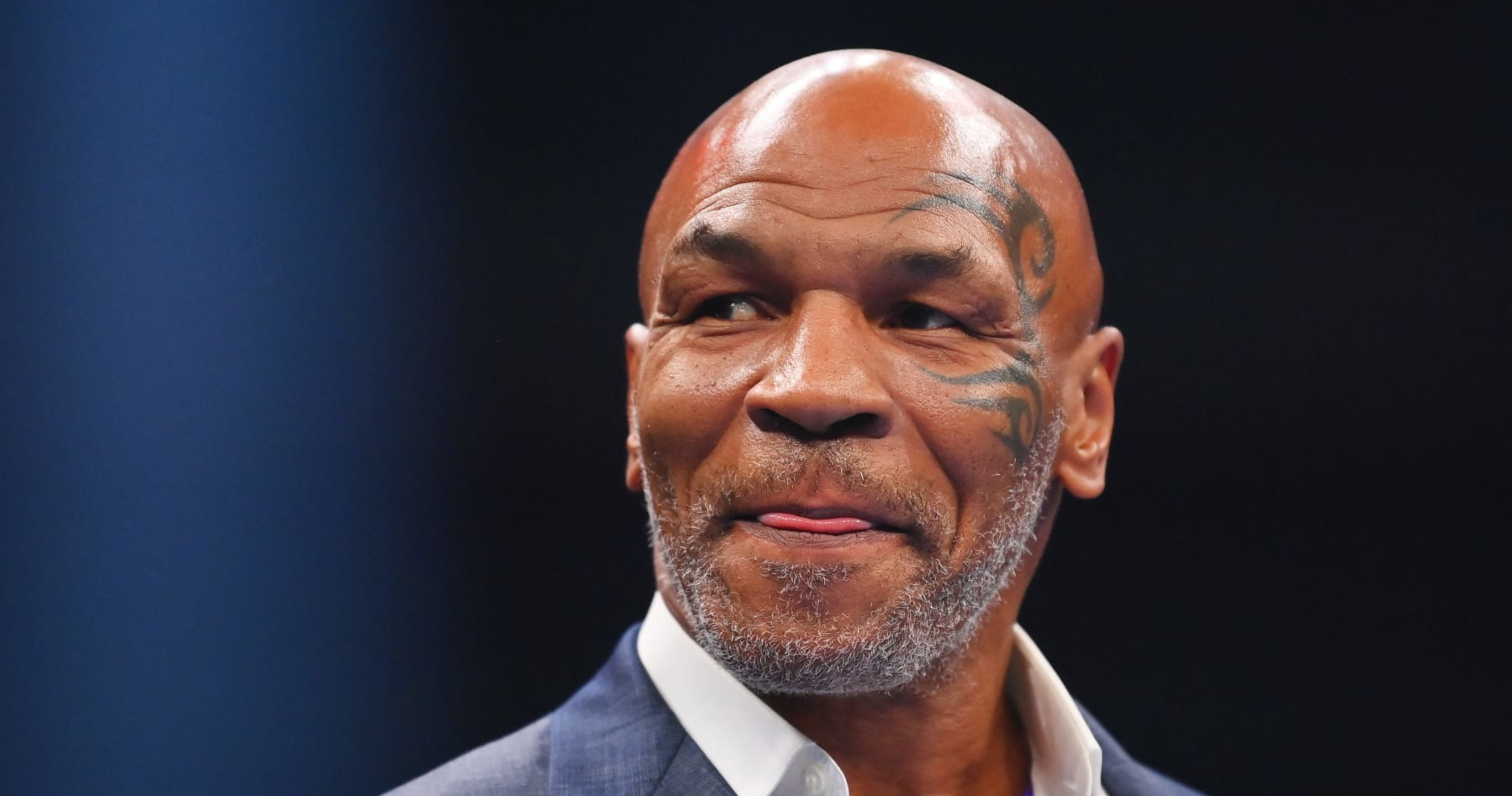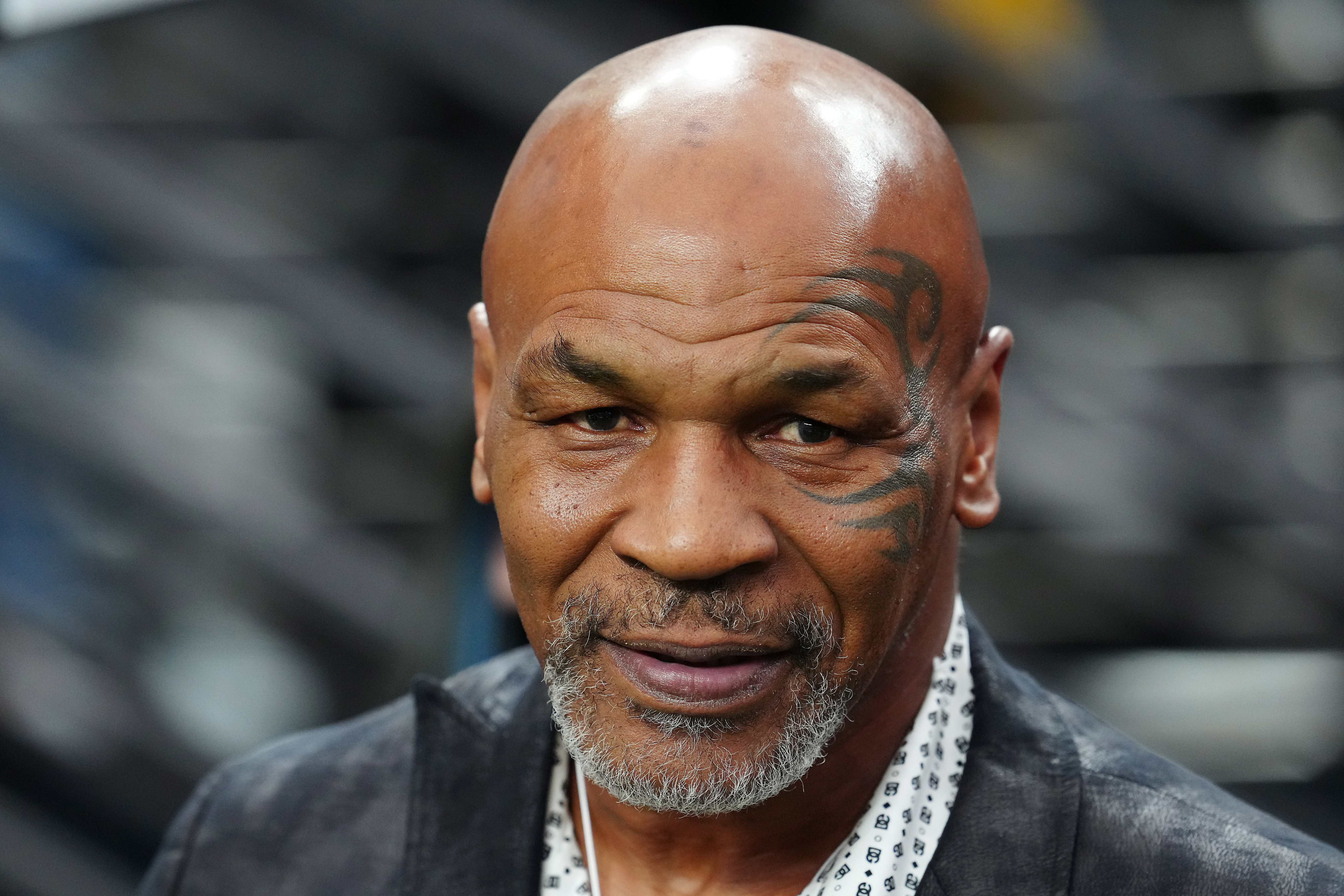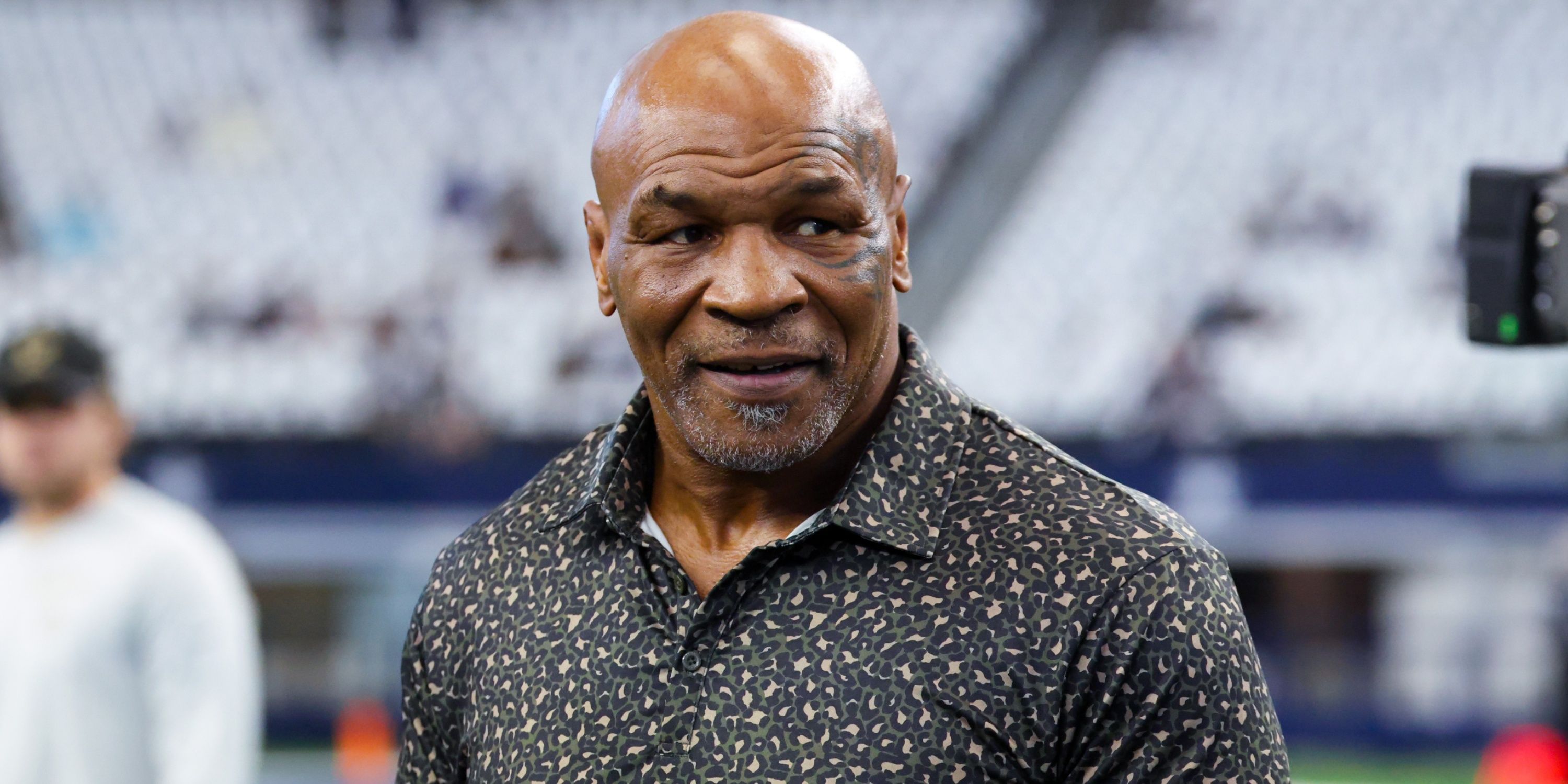Mike Wolfe Conviction: Unpacking Public Scrutiny And Legal Outcomes
When news breaks about a public figure facing legal challenges, it very often captures our attention, doesn't it? There's just something about these stories, especially when they involve a conviction, that makes us want to understand what really happened. People are naturally curious about the lives of those in the spotlight, and a legal outcome like a conviction can truly shift how we view someone, perhaps even permanently changing their public image.
This kind of intense public interest, you know, it's almost always present when someone well-known is involved in a court case. We see this time and again, whether it is a sports icon or a political leader. The sheer weight of public opinion, along with the legal process itself, can create a really compelling narrative, and that's something we often see play out in the news.
Today, we're going to explore the idea of a "Mike Wolfe conviction," thinking about what it might mean for a public person and how such an event can resonate with us all. While our provided information does not detail a specific "Mike Wolfe conviction," we can certainly look at the broader implications and the way public figures, like those named "Mike" in our source material, navigate controversial moments in their lives. This discussion will, in a way, help us think about the bigger picture of legal outcomes and public perception.
- Aislinn Derbez Boyfriend
- Chris Evans Height And Weight
- Kate Walsh Eye Color
- Tiffany Pesci
- Little Clover Whispers Onlyfans Leaks
Table of Contents
- Understanding the Impact of a Conviction
- Public Figures and Legal Challenges
- The Legal Process and Its Aftermath
- Media Scrutiny and Reputation
- Broader Implications for Society
- Frequently Asked Questions About Public Figure Convictions
Understanding the Impact of a Conviction
A conviction, for anyone, really, carries significant weight. For a public figure, however, the consequences can seem to extend far beyond the courtroom. It's not just about the legal penalties; it's also about the ripple effect across their career, their personal life, and even their legacy. When we talk about a "Mike Wolfe conviction," we are, in a way, considering how such a legal outcome could reshape everything for someone who lives in the public eye.
The immediate fallout from a conviction often includes a loss of trust from the public. People who once admired or followed the individual might, in fact, feel let down or even betrayed. This shift in public sentiment can then translate into tangible professional setbacks. Sponsorship deals might vanish, public appearances could be canceled, and even long-standing projects might just be put on hold indefinitely. It's a rather stark reminder of how fragile a public image can be, isn't it?
Beyond the professional realm, a conviction certainly impacts personal relationships and mental well-being. The stress of legal proceedings, coupled with the intense public scrutiny, can take a very heavy toll. Family members, too, often face their own challenges, dealing with the fallout and the constant media attention. This kind of situation, you know, is a very complex web of personal and public consequences.
Public Figures and Legal Challenges
Public figures, by their very nature, live under a magnifying glass. Every action, every word, it seems, can be scrutinized and debated by millions. This intense level of observation means that when legal challenges arise, they are often amplified, turning private struggles into very public spectacles. So, a "Mike Wolfe conviction," were it to occur, would undoubtedly become a major talking point, perhaps even for weeks or months.
It's interesting to consider how different public figures named "Mike" have, in fact, navigated controversial situations. We've seen, for example, the unauthorized miniseries "Mike," which explores the dynamic and controversial story of boxer Mike Tyson. His life, nicknamed "Iron Mike" and "Kid Dynamite," was certainly full of highs and lows, including legal battles that captured global attention. His career, from 1985 to 2024, showed how a public figure can, in a way, endure through significant controversy, yet still remain a polarizing figure.
Then there's Mike Johnson, the new Speaker of the House, who introduced a national version of Florida's 'Don't Say Gay' law and played a key role in Trump's efforts to overturn the 2020 election. His actions, while political, have certainly drawn considerable public debate and, in a way, show how public figures face constant judgment, even outside of criminal convictions. These examples, you know, highlight the varied forms of public scrutiny that people in the public eye can face.
The Weight of Public Perception
Public perception is a powerful force, almost like a tide that can lift or sink a person's standing. For someone like a hypothetical Mike Wolfe facing a conviction, this perception is very often shaped by media coverage, social media discussions, and even casual conversations among friends. It's not always about the facts of the case alone; it's also about the narrative that takes hold in the public imagination. The way a story is told, or how it's received, can really sway public opinion, can't it?
The media plays a very significant role in this process. News outlets, social media influencers, and even Rotten Tomatoes reviews for a series like "Mike" (the unauthorized look at Mike Tyson's life) can influence how a public figure is seen. The series, with Trevante Rhodes as the title role, and the team behind "I, Tonya," explores the "wild, tragic, and controversial life and career" of a polarizing figure. This shows how public narratives are crafted, and how they can shape our collective understanding of a person, even after their legal issues have concluded. This is something that, you know, happens quite a lot.
When a conviction occurs, the public often forms very strong opinions, and these opinions can be incredibly difficult to change. Even if there are appeals or new information comes to light, the initial judgment can, in a way, stick. This is why managing public relations during and after a legal battle is so incredibly important for anyone in the public eye. It's a constant battle, really, to try and shape the story in a way that is fair and balanced, especially when the initial narrative has already taken root.
Lessons from Other Mikes
Thinking about the various "Mikes" mentioned in our source text, we can draw some interesting parallels to the idea of a "Mike Wolfe conviction." Michael Gerard Tyson, for instance, a former professional boxer, had a career that was undeniably "dynamic and controversial." Nicknamed "Iron Mike" and "Kid Dynamite," he was later known as "the baddest man on the planet." His life, you know, has been the subject of much discussion, including his legal troubles.
Then there's Michael Jordan Bonema, known professionally as MIKE, an American rapper and producer. While his career is different, it still exists within the public sphere where actions and words are constantly observed. Even the general "Mike" who is a modern-day treasure hunter, prowling the urban jungle for scrap metal, faces a certain level of public exposure, perhaps through social media or local news, which could, in a way, lead to scrutiny if something were to go wrong. These varied examples show that public life, in any form, often comes with its own set of challenges, some of which can be legal.
The common thread among these "Mikes" is their public presence, which means any legal issue they face becomes a matter of public record and discussion. A "Mike Wolfe conviction," therefore, would simply add another layer to this ongoing conversation about public figures and their accountability. It tends to be a very compelling topic for many people, doesn't it?
The Legal Process and Its Aftermath
The journey through a legal process, especially one that leads to a conviction, is incredibly complex and, in a way, very demanding. It involves investigations, charges, trials, and potentially appeals. For a public figure, each stage of this process is often played out in the media, adding immense pressure to an already stressful situation. A "Mike Wolfe conviction" would, in essence, be the culmination of such a journey, marking a significant turning point.
It's important to remember that the legal system is designed to determine guilt or innocence based on evidence and established laws. However, in cases involving well-known individuals, public opinion can sometimes feel like it's part of the jury, even if it has no official standing. This dual process—the legal one and the court of public opinion—can make the experience even more challenging for the person involved. It's a bit like living under two different sets of rules, isn't it?
The aftermath of a conviction can be just as, if not more, difficult than the trial itself. The individual must then contend with the penalties imposed by the court, which could range from fines to probation or even imprisonment. At the same time, they also face the ongoing challenge of rebuilding their life and reputation in the public eye, a task that can often feel, in some respects, nearly impossible.
From Accusation to Verdict
Every legal case begins with an accusation, a claim that a law has been broken. For a public figure, this initial accusation can immediately trigger a cascade of media reports and public speculation. The very first headlines about a potential "Mike Wolfe conviction" would undoubtedly spark widespread discussion, long before any verdict is reached. This early attention, you know, can set the tone for the entire process.
As the case moves through the courts, evidence is presented, witnesses are called, and arguments are made by both the prosecution and the defense. This is a very structured process, designed to ensure fairness and due process. However, the details of these proceedings, when they involve a public figure, often become fodder for public consumption, dissected and debated on news channels and social media. It's a rather intense spotlight, isn't it?
The verdict, whether it's an acquittal or a conviction, marks a critical moment. If it's a conviction, it legally confirms that the individual has been found guilty of the charges. This moment, for a public figure, is often met with a surge of renewed media attention, as the world reacts to the official outcome. It's a very significant point, naturally, in anyone's legal journey.
Life After a Conviction
A conviction doesn't just end with the judge's gavel; it typically marks the beginning of a new chapter, one filled with significant adjustments. For a public figure, this means not only fulfilling legal obligations but also navigating a dramatically altered public landscape. The immediate future, for someone like a hypothetical Mike Wolfe after a conviction, would involve a complete re-evaluation of their public role and career path. This is a time that, in a way, demands a lot of resilience.
Rehabilitation, both legally and socially, becomes a primary focus. Depending on the nature of the conviction, there might be programs or conditions that need to be met. Simultaneously, there's the ongoing effort to regain public trust, if that's even possible. Some public figures choose to withdraw from the spotlight, while others attempt to redefine their image through new ventures or advocacy. It's a highly personal journey, and there's no single path that works for everyone, you know.
The long-term impact can truly vary. For some, a conviction might permanently overshadow their past achievements, defining their public identity moving forward. For others, with time and genuine effort, it might become a part of their story, perhaps even a lesson learned, rather than the sole defining characteristic. It really just depends on so many factors, doesn't it?
Media Scrutiny and Reputation
The media's role in reporting on a "Mike Wolfe conviction," or any public figure's legal troubles, is incredibly powerful. News organizations, and now social media platforms, can shape public opinion almost instantly. The narrative that emerges, whether it is accurate or sensationalized, can have a lasting effect on a person's reputation. This intense level of scrutiny is, in some respects, part and parcel of being a public figure in today's world.
Think about how reviews and ratings, like those for the "Mike" miniseries on Rotten Tomatoes, can influence public perception. Staying updated with critic and audience scores is something many people do, and this kind of collective judgment, while different from a legal verdict, shows how public opinion can coalesce around a figure. Similarly, a conviction, for someone like a Mike Wolfe, would be met with widespread commentary, from news analyses to social media discussions, shaping how the public views them going forward. It's a very pervasive influence, isn't it?
Rebuilding a damaged reputation is a monumental task, often requiring years of consistent effort and genuine change. It involves more than just issuing statements; it means demonstrating through actions that one has learned from their mistakes and is committed to a different path. This is a challenge that many public figures face, and it's a testament to the enduring power of public memory and perception. It's something that, you know, takes a lot of time and dedication.
Broader Implications for Society
A "Mike Wolfe conviction," or any high-profile legal case involving a public figure, often carries broader implications for society as a whole. These cases can, in a way, spark important conversations about justice, accountability, and the standards we hold for those in positions of influence. They might even highlight flaws within the legal system or raise questions about media ethics. It's a rather significant moment for public discourse, isn't it?
Such events can also serve as cautionary tales, reminding us that no one is above the law, regardless of their fame or status. They reinforce the idea that actions have consequences, and that public trust, once broken, is very difficult to restore. This is a lesson that resonates deeply with many people, and it often shapes our collective understanding of fairness and responsibility. It's something that, you know, we all think about from time to time.
Moreover, these cases can influence public policy or inspire reforms within legal or ethical frameworks. The discussions generated around a conviction can sometimes lead to greater transparency or new regulations aimed at preventing similar issues in the future. So, while the focus might be on the individual, the ripple effects of a "Mike Wolfe conviction" could, in fact, extend far beyond just one person

Mike Tyson Posts Day 4 Training Video for Jake Paul Fight: 'Fire's in

Mike Tyson 2024 Fight - Nora Thelma

Mike Tyson's Physique Has Changed Drastically After Jake Paul Fight